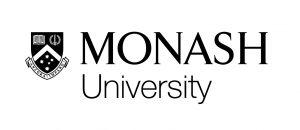
Posted: 29 October 2024
Monash University and Yale University, USA, have together received $4M AUD in funding from the Advanced Research Projects Agency for Health (ARPA-H), an agency within the U.S. Department of Health and Human Services (HHS), to drive forward a new treatment for ischemic stroke.
The Monash lead, Associate Professor Natalie Trevaskis from the Monash Institute of Pharmaceutical Sciences (MIPS), worked with Professor Anne Eichmann from the Yale School of Medicine to participate in the ARPA-H Sprint for Women’s Health spark track for early-stage research efforts. The Sprint addresses critical unmet challenges in women’s health, champions transformative innovations, and tackles health conditions that uniquely or disproportionately affect women.
The research team also comprises Monash University’s Associate Professor Connie Wong from the School of Clinical Sciences and Dr Mikey Whittaker, MIPS, as well as Professor Jean-Léon Thomas and Assistant Professor Lindsay McAlpine from the Yale School of Medicine.
Ischemic stroke is the most common type of stroke and occurs when a major blood vessel in the brain is blocked. It impacts around a quarter of women at some stage in their life and is the second leading cause of death globally.
Current treatments involve intravenously administering “clot-busting” drugs or removing clots using specialised equipment. These approaches have limitations and need to be administered within a few hours following the stroke in order to be effective.
“While current treatments can be very effective, they are associated with significant risk of bleeding and there can be several barriers limiting people’s access to them in a timely manner – our goal is to overcome these barriers,” Associate Professor Trevaskis said.
The multi-institutional team will seek to develop simple, cost-effective, portable and less time-dependent devices to non-invasively modulate brain-draining lymphatics to treat ischemic stroke, with an emphasis on understanding the variabilities in the lymphatic system based on age and sex.
“The ultimate goal is to develop new therapeutic technologies that enhance lymphatic removal of toxic waste products from the brain following stroke which can aid more effective recovery and reduce ongoing disability such as problems with speaking and moving,” Associate Professor Trevaskis said.
Many neurological and neurodegenerative diseases, including stroke, Alzheimer’s disease, multiple sclerosis, and migraine, disproportionately affect women more than men.
“The first aim of our project is understanding how the brain draining lymphatics vary in their pattern and function with sex and age, which is a critical step toward understanding the pathology of neurological and neurodegenerative diseases,” Associate Professor Trevaskis said.
“Secondly, we will be focusing on the development of new nano-drug delivery devices that enhance lymphatic removal of toxic waste products from the brain and ultimately lead to the reduction of global mortality, disability, social and economic consequences of ischemic stroke.”
The brain-draining lymphatics were only re-discovered in 2015 and much more recently, in 2024, a team of researchers led by Professor Gou Young Koh demonstrated that much of the fluid and waste products from the brain are cleared via lymphatics at the back of the nose (nasopharyngeal lymphatics), as published in Nature.
Furthermore, the clearance of waste products from the brain via lymphatics could be improved by promoting the pumping and drainage of downstream lymphatic vessels in the neck (i.e. outside the brain).
These discoveries have paved the way for the first non-invasive treatments that can improve the clearance of waste products from the brain by targeting the lymphatics outside the brain.
Director of MIPS, Professor Chris Porter, welcomed the ARPA-H support.
“The ARPA-H Sprint for Women’s Health is a fantastic initiative and much-needed opportunity for researchers from around the world to come together and tackle health conditions that disproportionately affect women,” Professor Porter said.
“I look forward to the outcomes from Natalie’s project and would like to congratulate her and her research partners for this success which could help to transform many lives around the world.”



